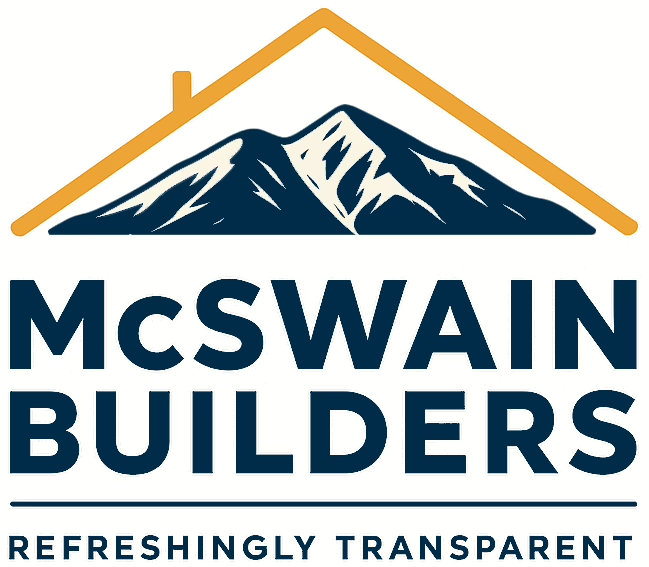In this guide, we’ll break down which tasks are better left to professionals and where DIY can make sense — especially if you’re working on a remodel in Glenwood Springs or nearby Enclave neighborhoods.
When DIY Makes Sense
DIY isn’t always the wrong choice. For minor fixes and creative upgrades, rolling up your sleeves might save money and provide satisfaction.
Good DIY Projects:
- Painting walls or cabinets
- Installing shelving or small fixtures
- Swapping out faucets or hardware
- Basic landscaping
These are typically low-risk tasks that don’t require permits, complex tools, or structural changes. They’re great for homeowners looking to put a personal stamp on their property. DIY can also be therapeutic and deeply satisfying for hands-on homeowners.
However, these projects are best when time isn’t critical, and there’s room to make minor mistakes without significant consequences.
Hidden Costs of DIY
What seems simple at first often turns into a series of unexpected issues. Miscalculations, delays, and safety risks can result in higher long-term expenses.
Common problems:
- Buying the wrong materials
- Mistakes that require professional corrections
- Injuries or property damage
Even tasks like tiling or flooring may appear manageable but often involve subtleties in alignment, sealing, and cutting that take years to master. Plus, the tools alone can be costly if you’re only using them once.
Time is money. DIY projects often stretch out over weekends and evenings, taking far longer than a professional would. The opportunity cost of your time can be substantial, especially if you’re juggling a full-time job or family responsibilities.
When to Call a General Contractor
When the project gets big, so do the risks. A General Contractor Glenwood Springs professional brings experience, licensing, and coordination that DIY simply can’t match.
Projects Better Left to Contractors:
- Full home remodels
- Kitchen and bathroom renovations
- Structural changes (walls, additions, decks)
- Electrical and plumbing work
- HVAC or roof replacements
Hiring a general contractor isn’t just about quality—it’s about safety, speed, and code compliance. Professionals know how to navigate zoning laws, pass inspections, and avoid expensive errors.
Contractors also bring insurance coverage that protects you in case something goes wrong. If you’re DIY-ing and cause damage or injury, your homeowner’s policy may not cover it.
Value of Experience and Connections
A licensed general contractor Enclave area builders trust will already have vetted subcontractors, knowledge of local building codes, and experience managing projects from start to finish. This saves time and prevents the domino effect of mistakes.
Benefits include:
- Proper permits and inspections
- Streamlined project management
- Access to discounts from trusted suppliers
- Project timelines that stay on track
Instead of coordinating plumbers, electricians, and carpenters yourself, a general contractor handles all the moving parts and makes sure everyone stays on schedule.
They also act as a single point of accountability. If something goes wrong, you know who to call—and they’re contractually obligated to fix it.
How to Decide What’s Worth Your Time
Ask yourself these questions:
- Do I have the skills to do this correctly?
- Will I need permits or inspections?
- What’s the risk of doing it wrong?
- Do I have the time to finish it without delay?
- What will this cost me if I make a mistake?
If the answer to any of these raises concern, it’s better to consult a professional. Even if you’re comfortable taking on small jobs, large-scale remodels or structural projects usually require expert oversight.
Combining DIY with Contractor Work
You can still stay involved without doing everything yourself. Many homeowners save money by painting, doing demo work, or handling minor finishes while leaving the major components to a licensed contractor.
This hybrid approach offers:
- Cost savings without compromising quality
- Personal involvement in your renovation
- A balance between control and convenience
For example, you might rip up flooring or remove old cabinetry yourself, then hire a professional to install plumbing, lay tile, or manage inspections. That way, you stay engaged but avoid the most technically demanding or risky elements.
Real-World Example: Kitchen Renovation
Imagine planning a kitchen renovation in Glenwood Springs. The temptation to DIY is strong: paint the cabinets, update fixtures, maybe even install new countertops. But behind the walls are plumbing lines, electrical wiring, and load-bearing structures.
A General Contractor Glenwood Springs professional will:
- Coordinate subcontractors efficiently
- Obtain all required permits
- Handle delivery and installation
- Ensure everything is code-compliant and safe
Doing this yourself might result in mismatched schedules, inspection delays, or even damage to your home’s structure. A botched kitchen remodel is one of the costliest and most frustrating mistakes homeowners can make.
Why Peace of Mind Matters
Even if you manage to pull off a major DIY job, the mental load can be exhausting. You’re project manager, laborer, troubleshooter, and quality control—on top of your regular life. Hiring a contractor reduces your stress and gives you peace of mind that the job will be done correctly.
You also benefit from warranties and post-project support. If something breaks or doesn’t work as expected, your contractor is responsible for repairs. With DIY, you own every issue that comes up.
What Do Contractors Cost?
Many homeowners hesitate to hire contractors due to cost, but when you factor in time, tools, material waste, and mistakes, the price gap narrows.
Contractors typically charge:
- A fixed project rate or hourly rate
- A percentage of total project cost
However, because of bulk material pricing, better time management, and reduced risk of redo work, many projects end up being more cost-efficient with a contractor involved.
Final Thoughts
DIY is a great option for cosmetic updates, but for anything involving plumbing, electrical, or structural work, hiring a General Contractor Glenwood Springs professional is the smarter choice. The time, safety, and quality assurance you gain by working with a licensed general contractor Enclave homeowners rely on far outweigh the risks of going it alone.
Ultimately, your time is valuable. Spend it where it matters—and trust the professionals where it counts. Whether you’re renovating a kitchen, upgrading your bathroom, or planning a full home remodel, the right contractor can turn your vision into reality faster, safer, and with better long-term results.


Recent Comments